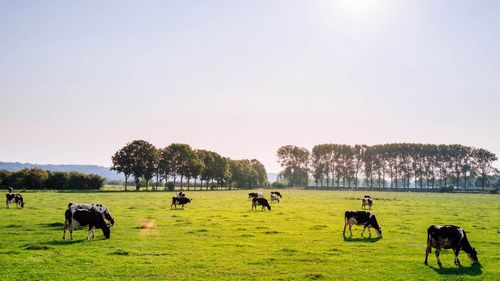Exploring the Richness of Cultural Diversity in Europe: A Journey Through Its Many Identities
Europe has a rich and diverse cultural history, with numerous nations and peoples that make up this vast continent. From the mountains of Spain to the fjords of Norway, Europe is home to a diverse range of people, languages, and traditions that have evolved over centuries. In this article, we will explore the richness of cultural diversity in Europe and take a journey through its many identities.
The Importance of Cultural Diversity in Europe
Cultural diversity is the essence of Europe and its people. The diversity of cultures within Europe makes it a unique and fascinating place to visit, with something to offer everyone. From music and art to food and architecture, Europe is a melting pot of different cultures, each with its own unique identity.
Moreover, cultural diversity has a vital role to play in shaping society in Europe. By recognizing and valuing different cultural perspectives, we can foster more inclusive and tolerant communities, where everyone’s voices and traditions are respected. In this way, cultural diversity is not just an aspect of Europe’s heritage and creativity, but also a key contributor to its social cohesion and economic success.
What Makes European Cultures Unique?
Europe has a rich and diverse history that has shaped its cultural identity, both individually and collectively. From the Roman Empire to the Renaissance, from the Enlightenment to the Industrial Revolution, Europe has undergone significant transformations that have impacted its cultures and people.
One of the most striking characteristics of European cultures is their impressive artistic and architectural heritage. From the Gothic cathedrals of France to the Baroque churches of Italy, Europe has a rich tapestry of artistic masterpieces that reveal the creativity and ingenuity of its people.
Furthermore, Europe’s cuisines reflect its cultural diversity, with gastronomic traditions that differ significantly from country to country. From the hearty stews of Germany to the delicate pastries of France, Europe’s food is as varied as its cultures.
Challenges and Opportunities for Cultural Diversity in Europe
While Europe’s cultural diversity is undoubtedly a source of strength and richness, it also presents challenges that must be addressed. Some of the most significant challenges are the tensions arising from cultural differences, such as those related to religion and ethnicity, as well as economic inequalities among different regions in Europe.
However, with challenges come opportunities, and Europe’s diverse cultures offer many opportunities for innovation and growth. By leveraging their differences creatively, European nations and peoples can collaborate and learn from one another, leading to new ideas and solutions.
Conclusion: Celebrating Europe’s Diversity
In conclusion, Europe’s cultural diversity is a source of inspiration and pride, reflecting the richness of its history, people, and traditions. By celebrating and valuing Europe’s many identities, we can build a more inclusive, tolerant, and prosperous society, where the diversity of cultures is a strength rather than a source of conflict.
(Note: Do you have knowledge or insights to share? Unlock new opportunities and expand your reach by joining our authors team. Click Registration to join us and share your expertise with our readers.)
Speech tips:
Please note that any statements involving politics will not be approved.
